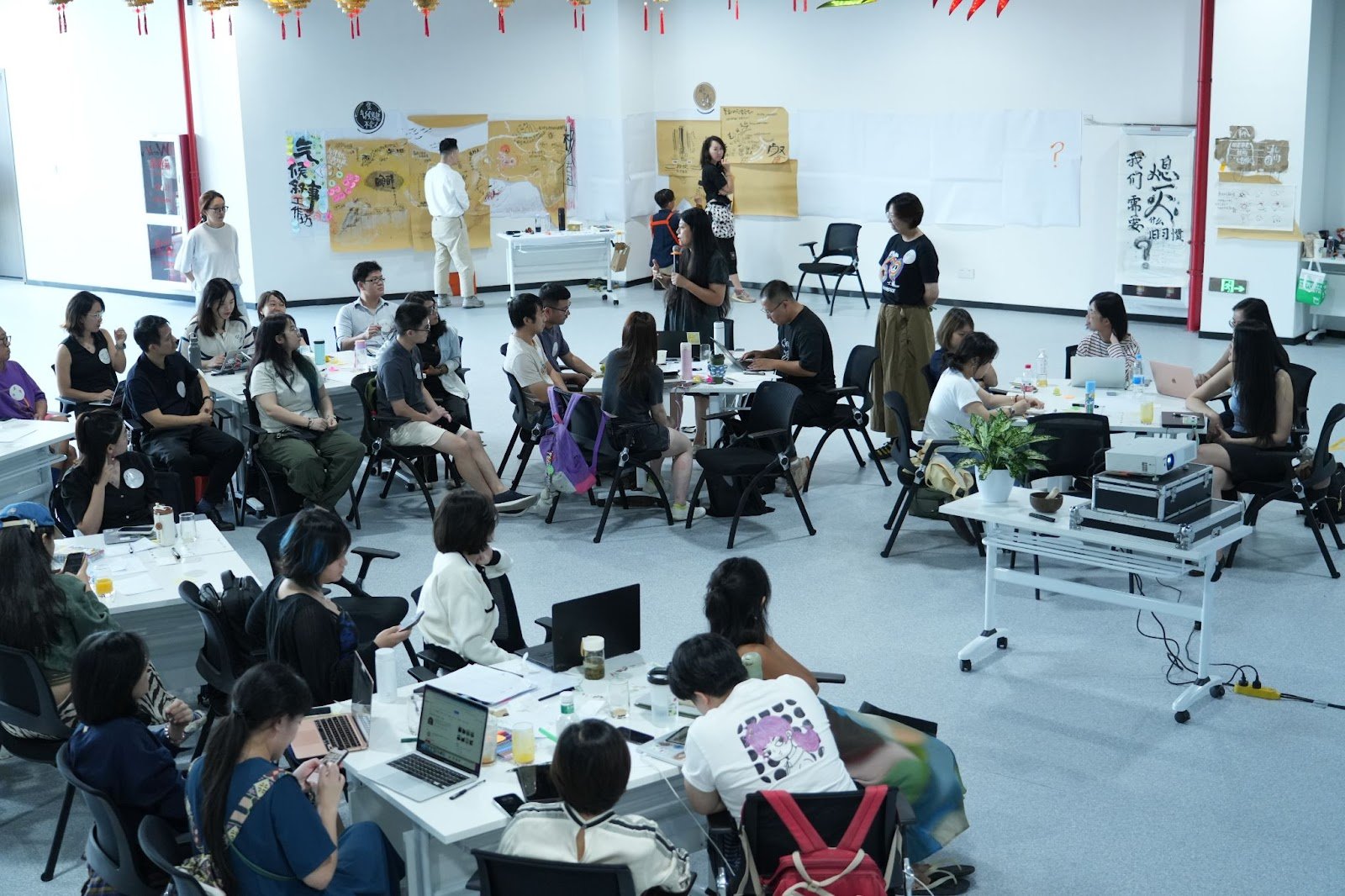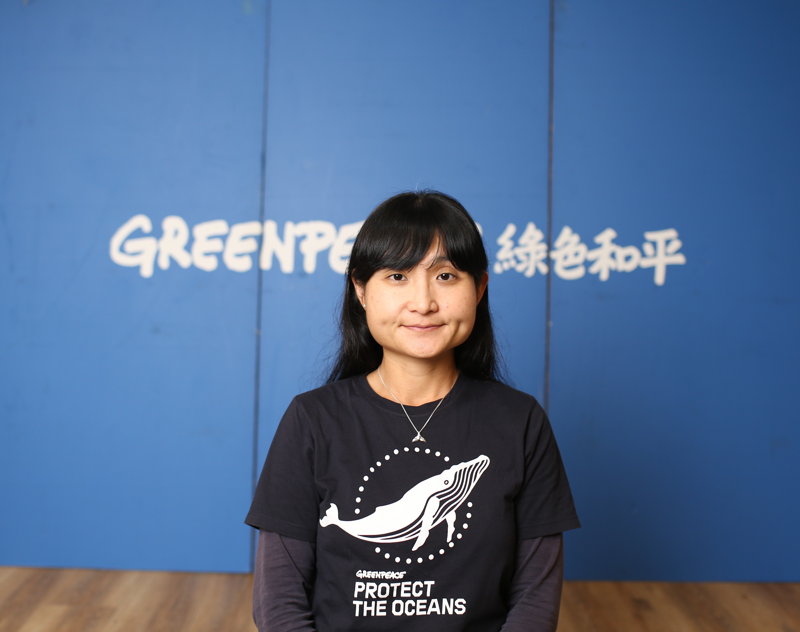“Everything is connected” was the first principle Dr Xoni Ma learned from his ecology study. Now a Hong Kong environmental educator, Xoni has been conveying the same message to the public. The principle also applies to how we arouse public awareness of risks in climate change. Thanks for his sharing on environmental education, from the principle to his understanding and goals. Through the following lesson with Xoni, we believe a larger group of people would be inspired and empowered in actions combating climate change.
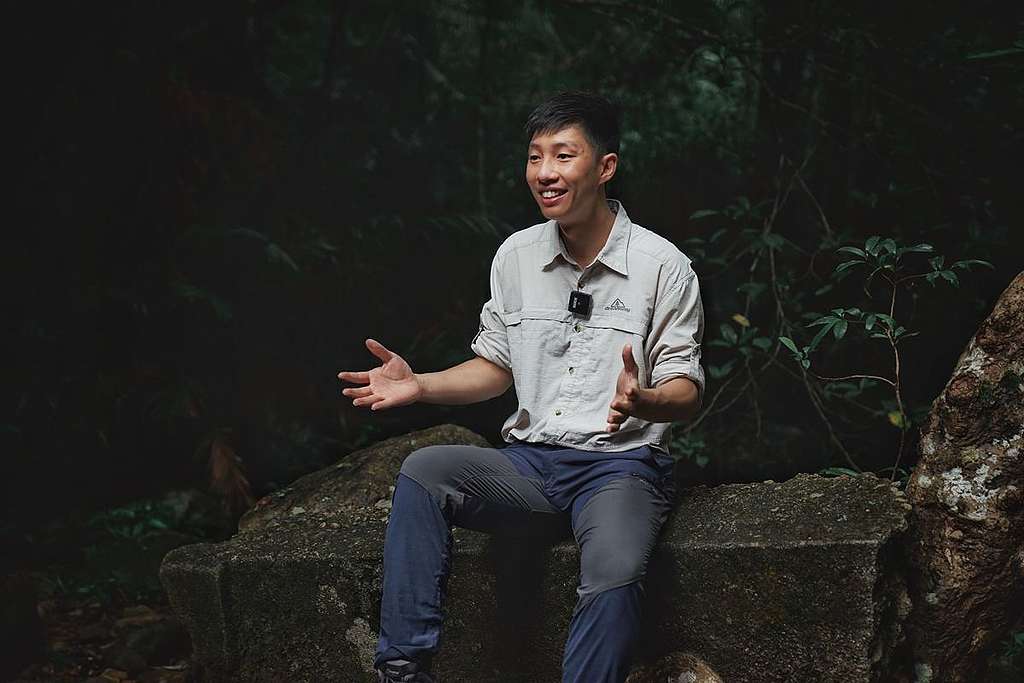
Here is a short bio about Dr Xoni Ma. Graduated from Ecology and Biodiversity from the University of Hong Kong (HKU) in 2010, Xion pursued his PhD research study on “Environmental Education” at the HKU Kadoorie Research Centre. Since then, he has been working on ecology-related research and education. 5 years ago, Xion established a non-governmental organization (NGO), Outdoor Wildlife Learning Hong Kong (OWLHK), with his partners sharing the same vision.
Hong Kong people know what climate change is, yet…
It is the 10th entry of the “Let’s Talk about Climate Change” series, through which we have shared stories of different people in the Hong Kong community regarding how they connect to the climate change issue and the ways they deal with it. Ecologist, Dr Xoni Ma, told us his view about it: for sure, Hong Kong people know what climate change is, yet most of us stop at the recognition level and we seldom take actions to combat it.
“Climate change is an extremely big and complicated issue. It involves various stakeholders and conflicts of interests among them. No one solution will fit all, and many matters are not about right and wrong. It’s not easy to understand this issue in the first place, not to say asking somebody to move one step further to help solve the problems at the expense of his/her own interest. As the theme of International Day for Biological Diversity 2021 says, ‘We’re part of the solution’, but Hong Kong people are yet to fully engage in it.”
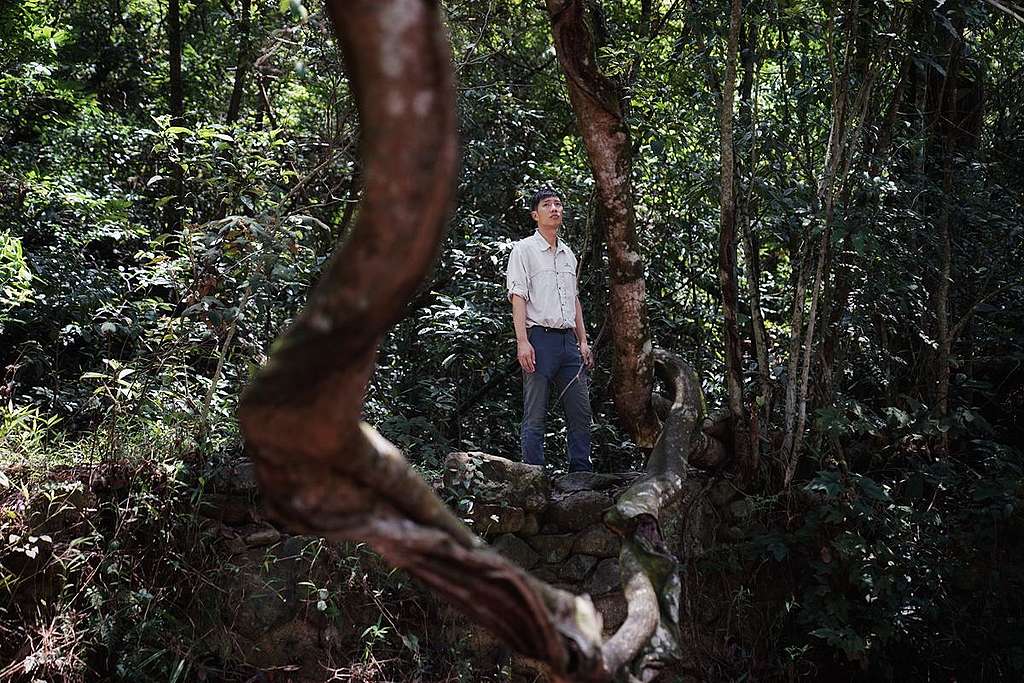
“First and foremost, we have to understand the world is one, everything is connected. It was what my teacher told us in our ecology class, the same message we convey to the public through environmental education. Only when we know how the world and nature work, we would be able to identify remedial solutions. To begin with, climate change is a big issue consisting of different aspects, each connected to one another, in particular our ecology.
Second, how do we help relieve climate change? Is organizing a young ambassador scheme the only way out? Based on the first point, we understand ‘everything is connected in the world’, and the answer (to the latter question) must be no. (On the contrary,) everyone can help relieve climate change from different entry points. For instance, I would engage the community through outdoor eco-education tours, and this would be my starting point and entry point.”
Xoni explained how human beings could be connected to the environment through the 5-step goal of environmental education: awareness, knowledge, attitudes, skills, and participation. In general, Hong Kong people are staying at the first two basic steps, awareness and knowledge. Concerns towards climate change are not yet a prevalent attitude found in the public, not to mention the participation step.
Everyone realizes the issue, not everyone goes green
Xoni is right. In line with environmental education, we share the goal to engage more people in environmental activities against climate change. Let us begin by raising the awareness of climate change, we would then learn to understand our environment. Gradually, we will develop our love for the earth, and equip ourselves with skills to participate in environmental protection.
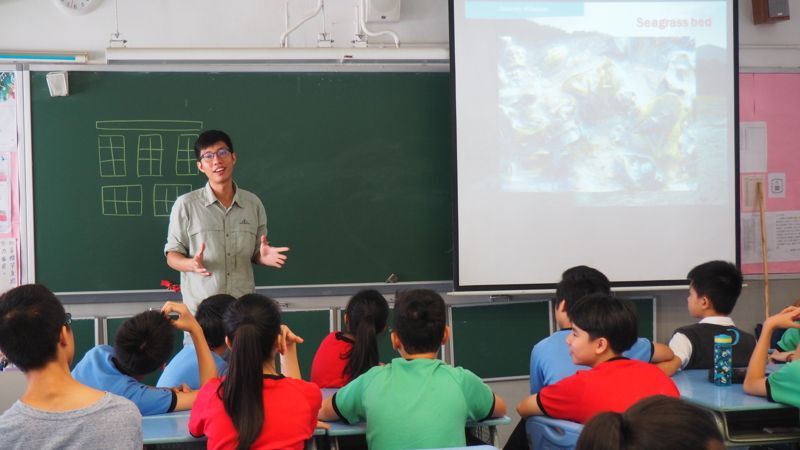
The 5-step goal in environmental education illustrated a progressive flow pointing to the final action step. To change one’s attitude to the environment, he/she has to understand it and connect with it. If one manages to appreciate the magic of nature and have an affection for it, one will be driven to put his/her efforts to protect the environment. That’s what environmental education is trying to get people in three levels of involvement, “about the environment, in the environment, and for the environment”. He pointed out that the theme “we are part of the solution” of the 2021 International Biodiversity Day highlights how each of us could be there “for the environment”, and each of our efforts matters.
Friends who are reading this article shall be those who are concerned about the environment and climate change. We may perhaps accept a cruel truth that many around us know about the issues, but only a few of us could go green and work towards making changes in the community. Why is it so? Xoni elaborated human’s green behaviours based on findings of research studies conducted by environmental psychologists, from which we could see three variables:-
1. Entry-Level – Our behaviours could be changed at an entry-level, from the point we made our decisions. For example, if somebody lacks a proper understanding of ecology but practises “mercy release” as a religious ritual or out of his/her love for animals, it could bring about detrimental effects to the environment however good the intentions could be. The public shall be educated that rather than doing good for lives, foreign species or captivated lives released to rural areas of Hong Kong would disrupt our local ecology.
2. Ownership – The reason why human being is willing to go green is because it is highly relevant to us. Simply put, if we pitch green initiatives to those who do not care about nature, they would likely ignore it. Back to the essential principle about “everything is connected”, we could figure out how people could begin to care from the point that interests them, let them understand our environment is highly relevant to them. To friends who care about money, we could start from environmental economics, such as what a mangrove could mean to us, how we could quantify the “services” the nature rendered as dollar values in the community. That is to say, if we want to engage this group of friends in action against the removal of certain mangrove, we shall let them know the billions of economic value it would cost. This is such kind of in-depth knowledge of the issue that would motivate others for desirable changes.
3. Empowerment – It is about giving others the power to go green. Too abstract? Let’s feel the power of passion in Xoni and how he manages to influence others through the following conversation:
“Are you part of the world?
Yes?
That’s right. If you could change yourself, you are changing the world. You won’t change everyone in the world, but you can start from yourself, because you are part of the world, and this is what matters.”
Eco-education spreads hope and drives changes
Most people think what they do can be too tiny and insignificant. They may think saving one plastic bag does not help much and could not see the meaning to take further action. Empowerment is about encouraging others to take part in it, for joining the green efforts of the community as a whole.
“Environmental education is inspiring others with hope for changes, enabling others to know they can help save the earth. The Ripple effect starts from the effort of every individual. If one is willing to change for the earth, his/her passion would influence his/her circle of friends, thereby affecting others.”
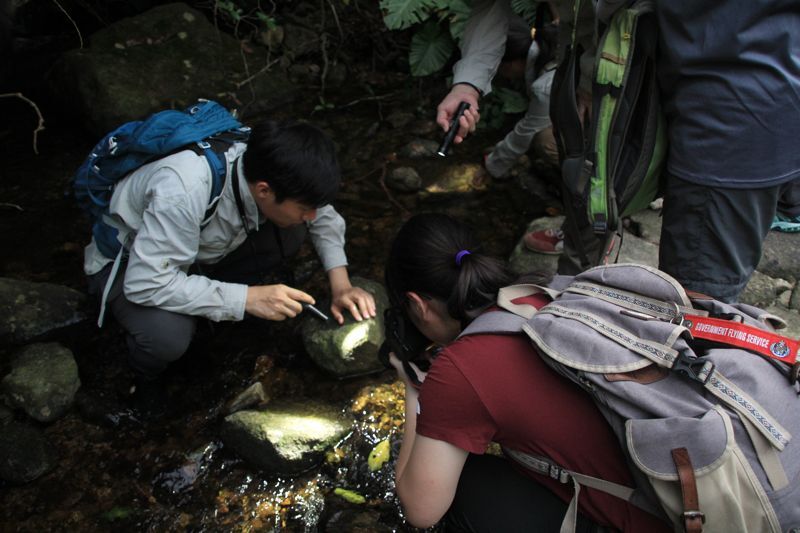
To promote environmental education in Hong Kong, Xoni is working towards 4 major missions: going outdoors, getting environmental education to the mainstream, promoting professionalism and co-creation. There is much space for improvement in both the education and industry sectors. In Hong Kong, environmental education is yet to be included in the mainstream curriculum. Students may only go for field study once in a whole academic year, as the learning experience is not learner-centric. This does not favour the conditions to build up students’ relationship with nature, nor their care for the environment. The local eco-education blossoms with diversity, yet there lacks exchanges among different parties and non-governmental organizations. An accreditation system of eco-education is yet to be developed to co-create the quality and professionalism of different organizations in the field.
To wrap up, Xoni quoted the Chinese classic Book of Rites to demonstrate how ancient wisdom reveals the experiential nature of eco-education: the process of finding out the knowledge we lack and empowering ourselves through teaching and learning. As an educator, he often reflects on how he can become a better him. His motto is cheering, “‘Passion opens doors’. Everyone needs to keep his/her passion glooming. It’s easy to see frustrating news every day in the environmental science field”.
About “Let’s Talk about Climate Change” series
Climate change is not only here, but it has also evolved to “Climate Emergency”. As global citizens, we should not ignore the crisis we are in. Yet sometimes if not all, we might feel the issue is too big for us or too far away. We are inviting people in our local community, from all walks of life, to share with us how they connect to and make the effort to deal with climate change. Read More

